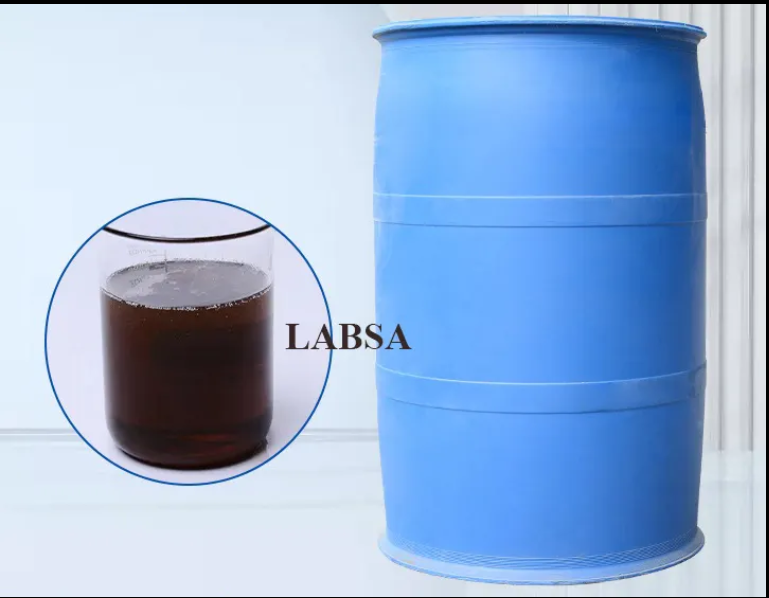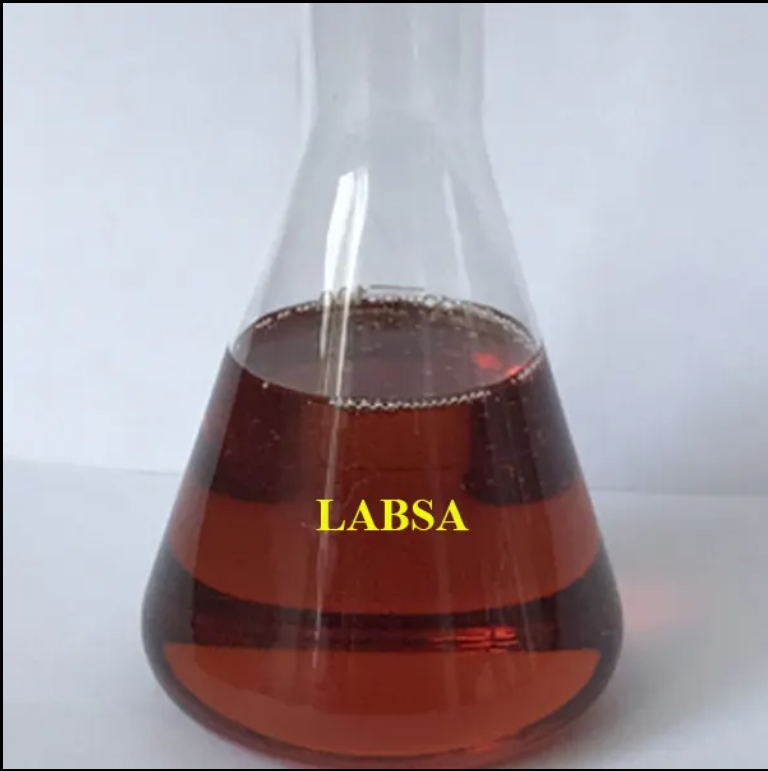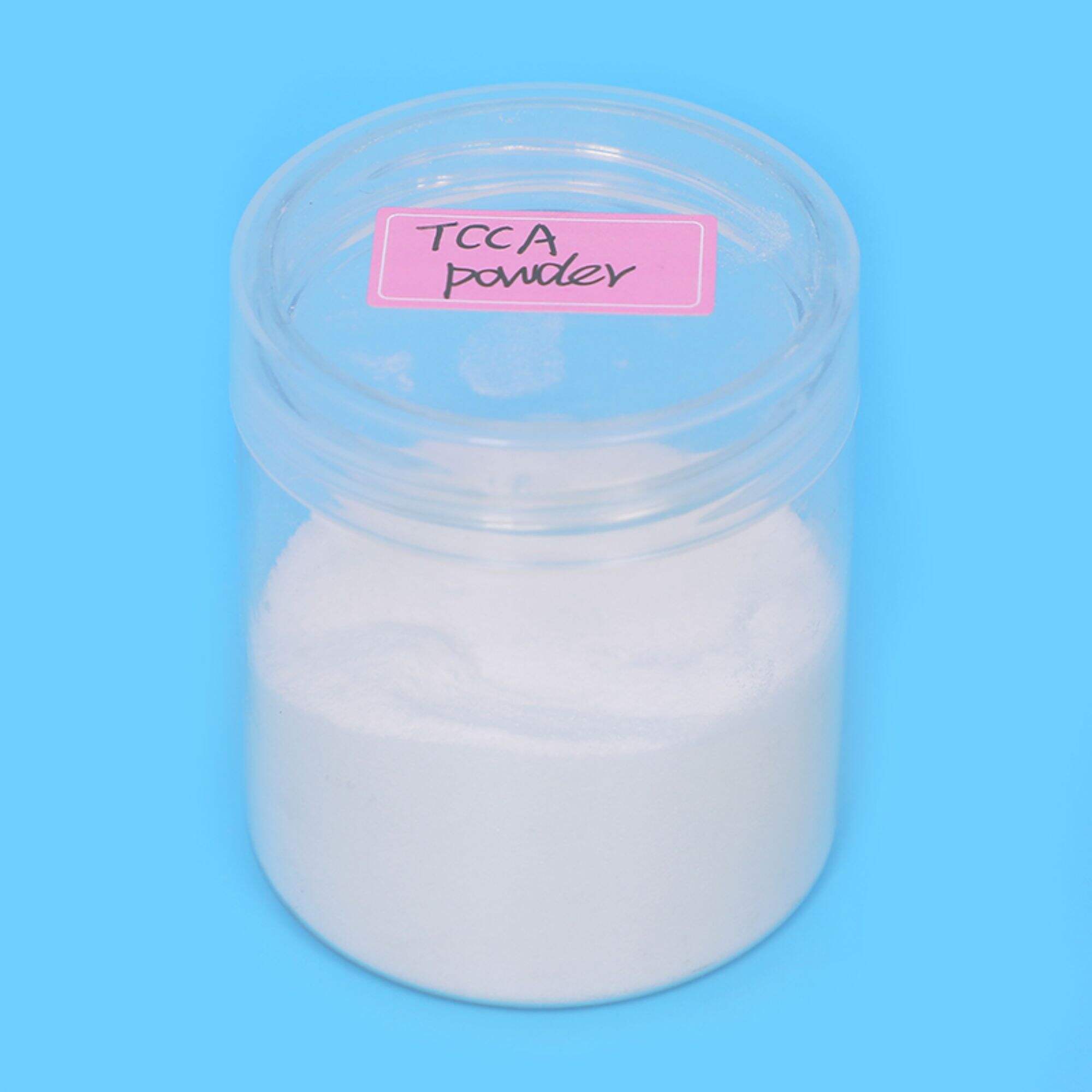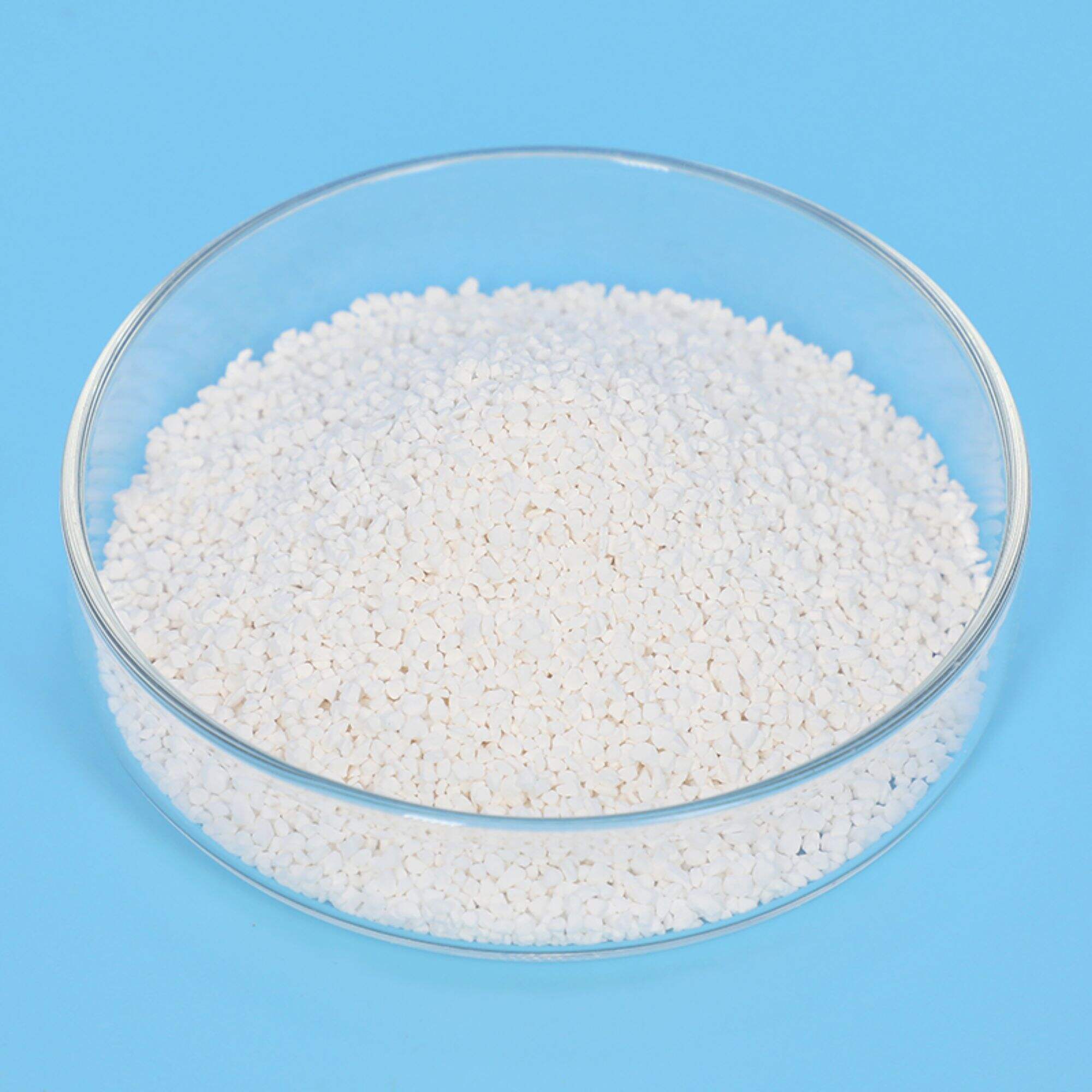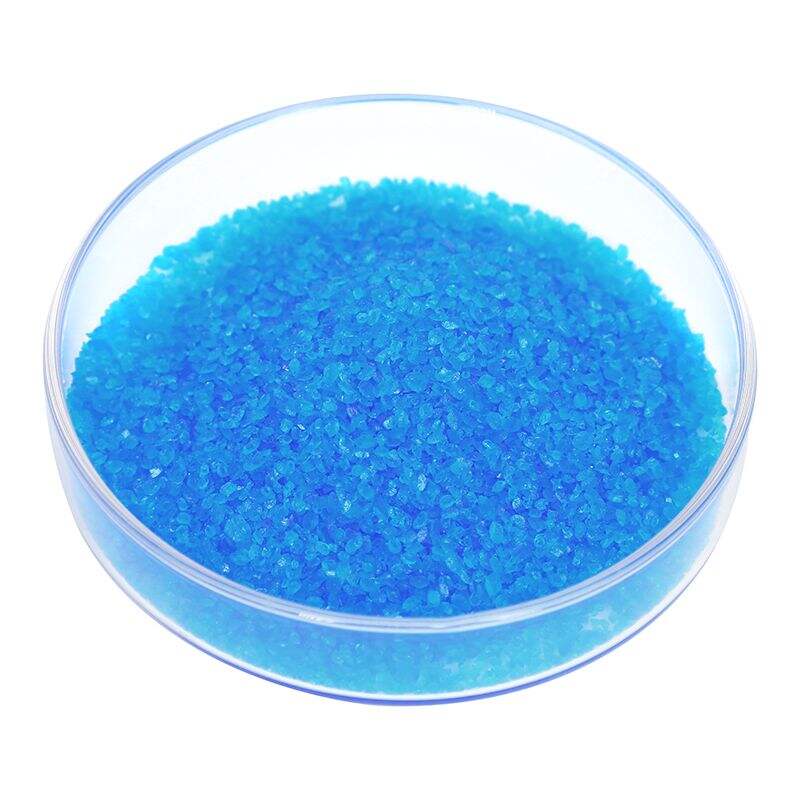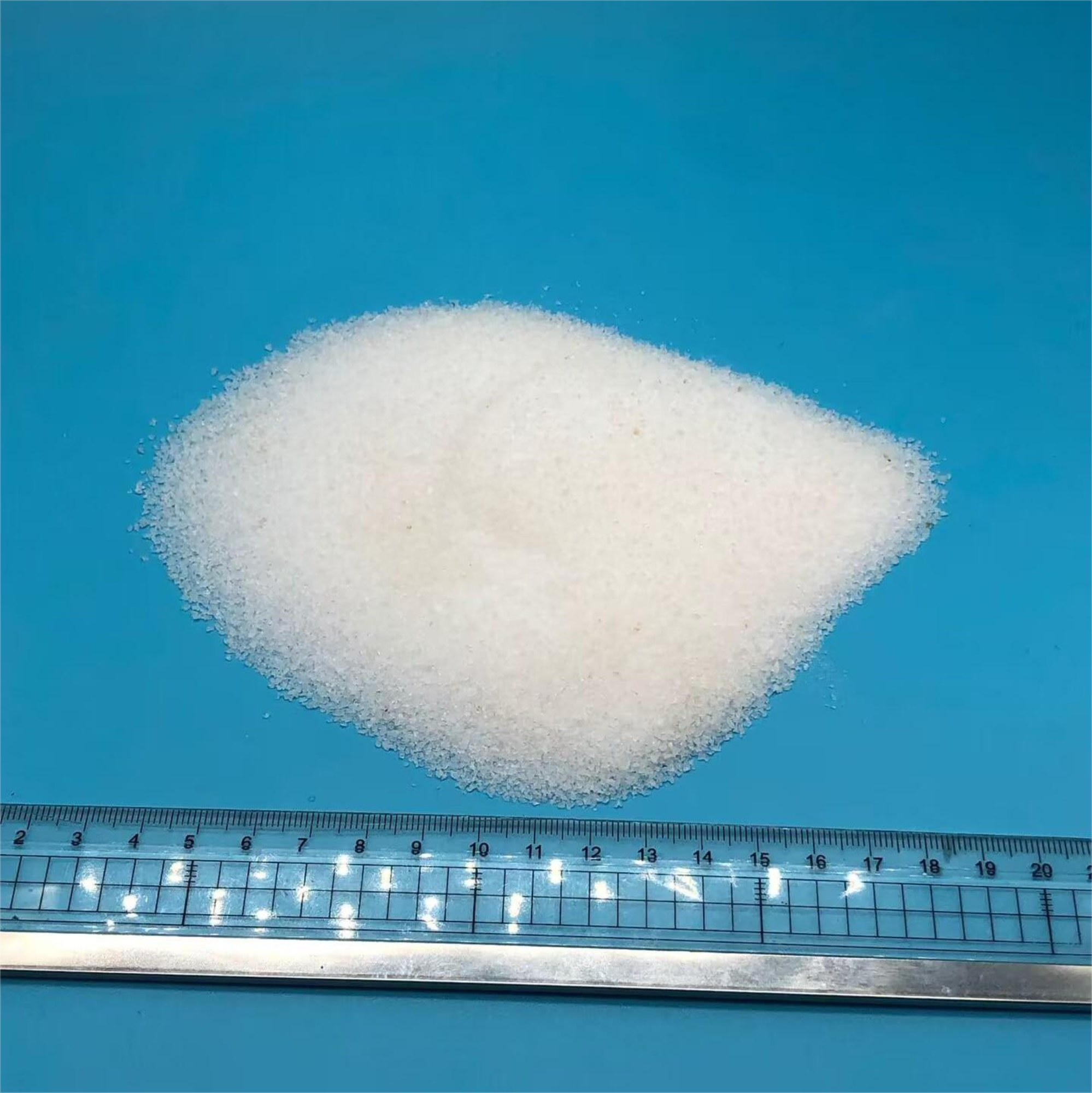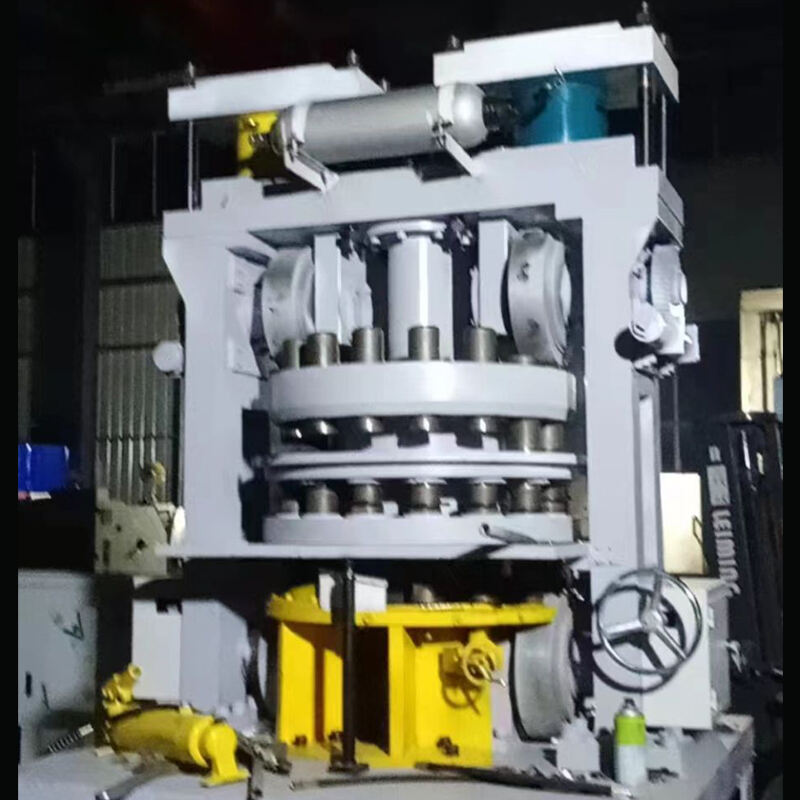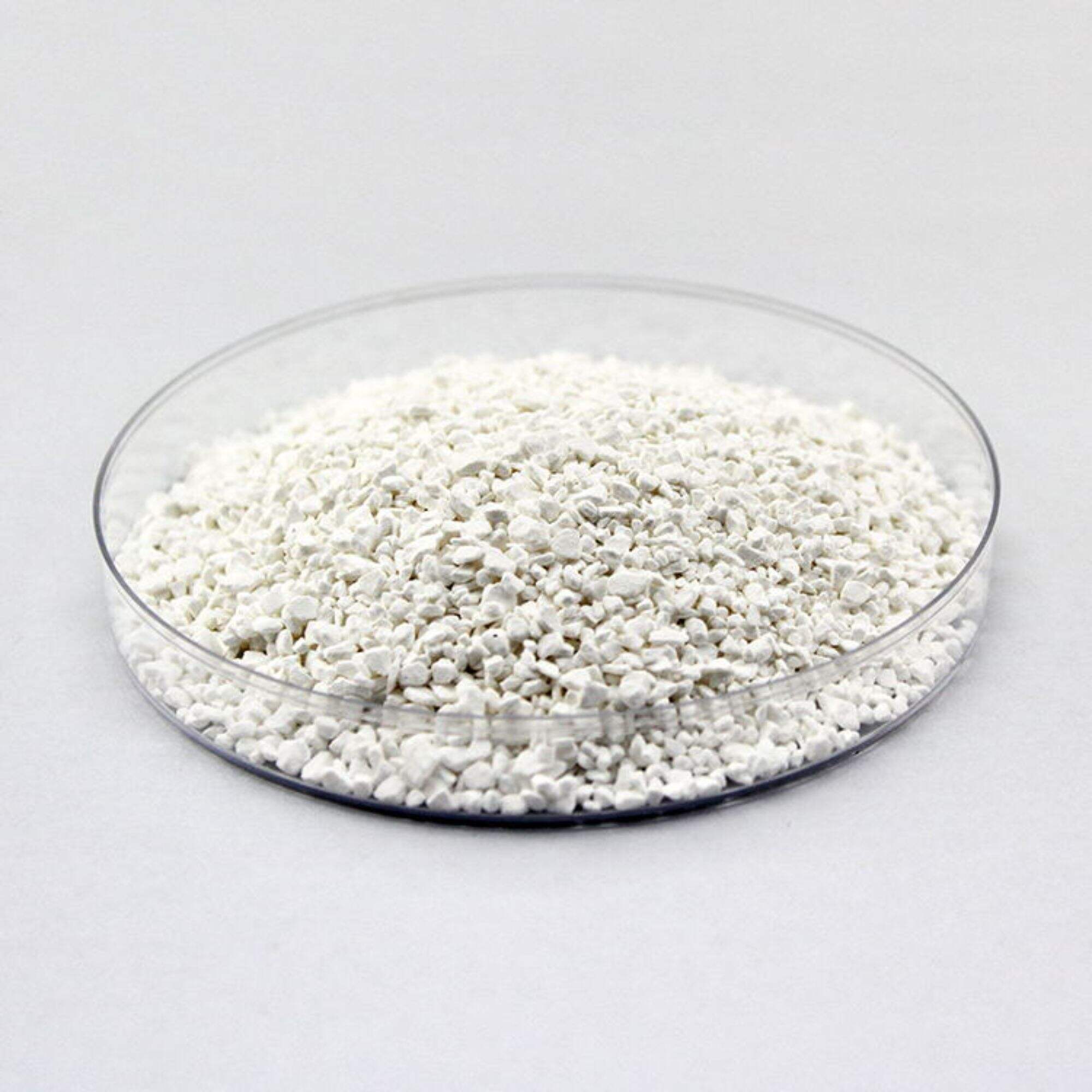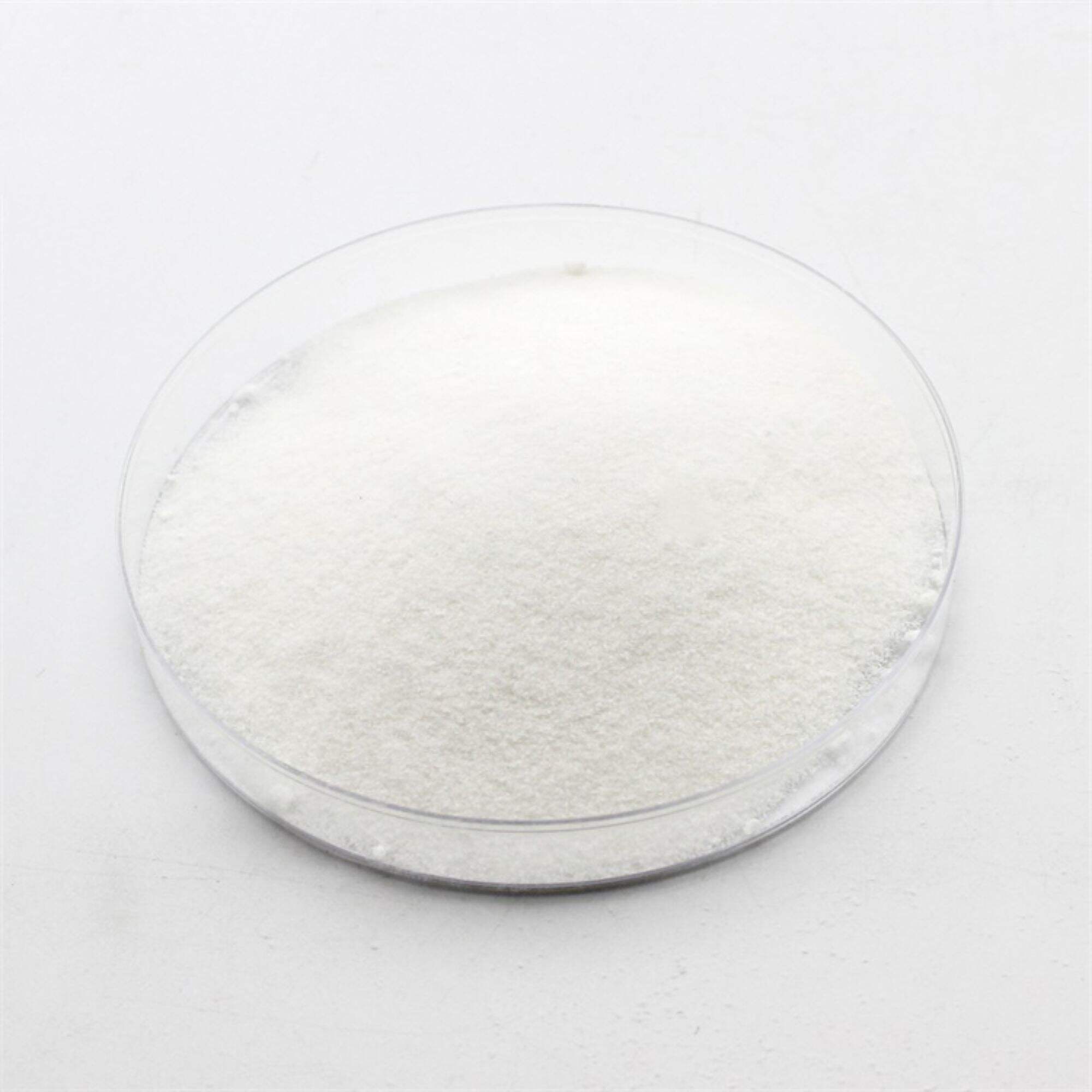Planta de fabricação 96% de pureza LABSA para material detergente Labsa
Folheto do produto:DOWNLOAD
Aparência: Geralmente se apresenta como um líquido viscoso, amarelo claro a marrom. A variação de cor pode ser devido a diferentes processos de produção e níveis de purificação.
Odor: LABSA tem um odor característico, um tanto pungente.
Densidade: A densidade geralmente fica na faixa de 1.02 - 1.05 g/cm³, o que é um parâmetro importante para considerações de armazenamento e transporte.
Solubilidade: É altamente solúvel em água, formando inicialmente uma solução turva que clareia após mais agitação. Essa propriedade de solubilidade permite sua ampla aplicação em formulações aquosas.
Introdução de produto
Cenários de Aplicativos
A embalagem do produto
Introdução de produto
Detalhes do produto
| LABSA | |
| APARÊNCIA |
LÍQUIDO VISCOSO MARROM |
| MATÉRIA ATIVA % | 96.3 |
| MATÉRIA NÃO SULFATADA % | 0.7 |
|
H2SO4 |
1.2 |
|
COR (5%SOLN) |
25 |
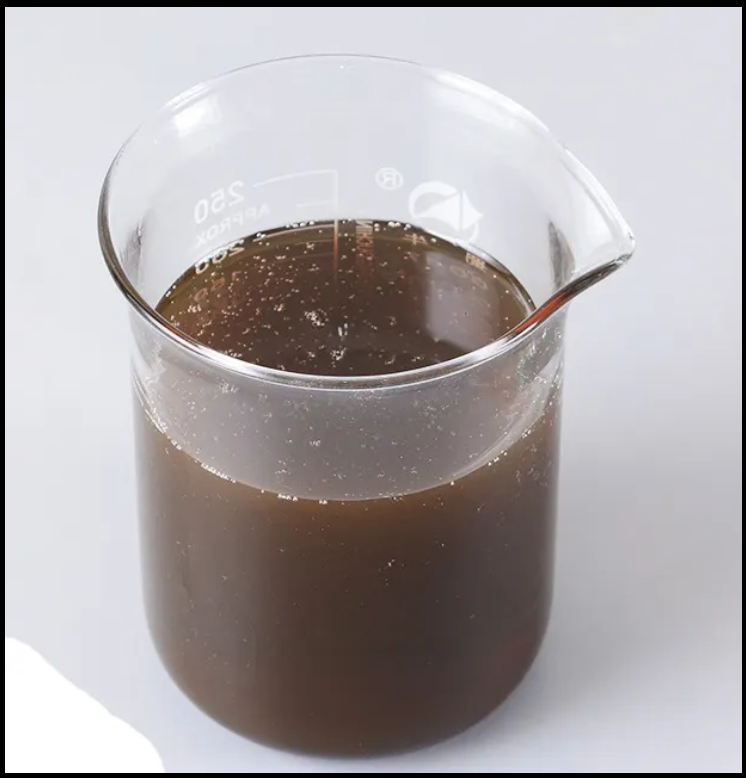
Cenários de Aplicativos
Solicitações
- Indústria de Detergentes: É a espinha dorsal da formulação de detergentes. Os sais solúveis em água formados a partir do LABSA fornecem excelentes propriedades de detergência, emulsificação e formação de espuma. Ele pode remover efetivamente sujeira, graxa e manchas de tecidos, tornando-o indispensável em detergentes para roupas, detergentes para lavar louças e limpadores industriais.
- Indústria Têxtil: LABSA é usado no processamento têxtil para pré-tratamento, tingimento e acabamento. Ajuda a umedecer as fibras, melhorando a absorção de corante e fornecendo propriedades antiestáticas aos têxteis acabados.
- Indústria do Couro: Na fabricação de couro, é aplicado para desengordurar, encharcar e curtir. Auxilia na remoção de gorduras e óleos naturais dos couros e peles, preparando-os para processamento posterior.
- Indústria do petróleo: pode ser usado como emulsificante em emulsões de petróleo, ajudando a misturar substâncias imiscíveis como óleo e água, o que é benéfico para lamas de perfuração e processos avançados de recuperação de petróleo.
A embalagem do produto

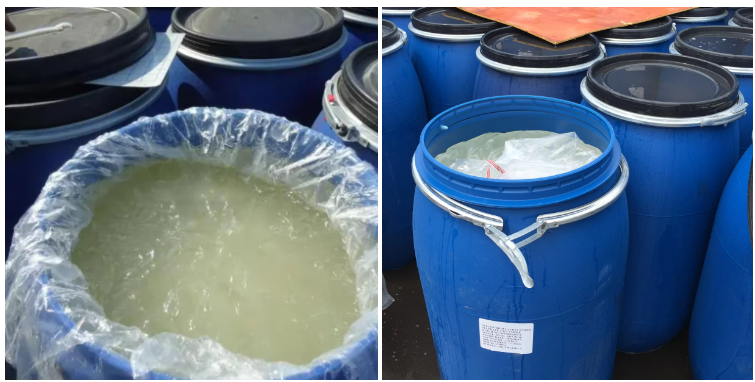

 EN
EN







































